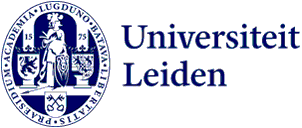
Charlotte wins thesis award on argumentation theory: ‘This is one way to strategically pin someone down’
Everyone has heard arguments like this before as a child: ‘Whether you like it or not, you have to go to school!’ It seems as though you are presented with two options, but there is only one real outcome. Charlotte van der Voort of the MA Dutch Studies won the Leiden University Thesis Prize on her research of this style of argumentation.
Charlotte was surprised when she heard that her thesis ended up being the best. ‘As one of the seven nominees there is obviously a chance you might win the prize, but I still had not quite seen it coming. All of the nominees have done a fantastic job with their thesis, which makes it even more honourable to be chosen as the winner.’
Strategic deadlock
Her thesis was about dilemmatic arguments. This is an argumentation style in which two contradictory options are presented, but they lead to the same conclusion. An example Charlotte discusses in her thesis is derived from a parliamentary debate on the cabinet formation crisis of last year. At the time, acting Prime Minister Mark Rutte was in dire straits after he had falsely claimed not to have spoken about MP Pieter Omtzigt. In that debate, Thierry Baudet used a dilemmatic argument to outline the situation that had arisen: ‘There are two possibilities: either Mr Rutte suffers from serious amnesia, which makes him completely dysfunctional, or he is a pathological liar. In either case, he is utterly unfit to be prime minister.'
The persuasiveness of the argument lies in the nature of the argument itself, according to Charlotte. ‘With a dilemmatic argument, you can do two things at once: you can present your own argument and deprive the other person of a rebuttal by anticipating possible counterarguments,’ she explains. ‘Take the example of Baudet. He probably believes that Mark Rutte lied, but he also anticipates the possibility that Mark Rutte would deny this and maintain that he had simply forgotten.’ This way, he has backed Rutte into a corner. ‘Even if Rutte says he has forgotten, according to Baudet’s argument he is still unfit to be Prime Minister. This is one way to strategically pin someone down.’

Intrinsic motivation
For students who would also like to get the most out of their thesis, Charlotte has two important tips. ‘Be original and choose a subject that moves you. One that drives you to learn everything there is to know about it,’ she says.
‘During my bachelor’s I took a minor in Rhetorics. I enjoyed this minor so much that I decided that, in addition to a research master’s in Classics and Ancient Civilizations, I wanted to do a master's in Dutch Studies with a specialisation in Dutch Discourse Studies in order to gain more in-depth knowledge of modern argumentation theory. Both fields of study reinforce each other. Rhetorics originated in classical antiquity and modern argumentation theory builds on this in a certain sense, but approaches argumentation in a much broader way.’
‘For my thesis, I wanted to combine my knowledge from both disciplines. One evening, I came across Aristotle’s description of dilemmatic arguments. Coincidentally, that was exactly one year before the award ceremony,’ recalls Charlotte. ‘This style of argumentation immediately piqued my interest. It is like a puzzle; the argument seems very convincing, but it is not quite sound. Using modern argumentation theory, I wanted to get to the bottom of this style of argumentation, which ultimately lead to my master’s thesis for Dutch Studies.
Not quite finished
Although Charlotte may have completed her master's in Dutch Studies, she will be sticking around at the university for a little longer. ‘I want to complete my other master’s first,’ she says. After completing her second master’s, Charlotte has also shared her interested in doing a PhD.
Leidse University Thesis Prizes
An outstanding thesis, an impressive report or the best research question. With various prizes, the LUF encourages ambitious students to get the best out of themselves. The Leiden University Thesis Prizes fit perfectly with this tradition. Each faculty can nominate one thesis for the prizes. The prizes are made possible by the Minerva Class of 1957/1961/1965 Alumni Fund.
